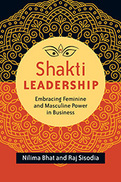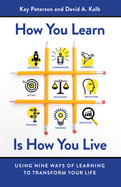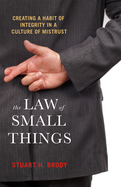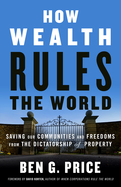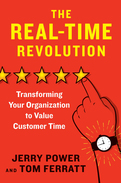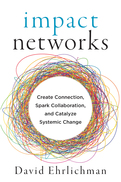Search Results: "Seeing Red Cars"
Results 235-240 of 246
Shakti Leadership
2016
Unlocking the Source for True Leadership
Too many people, men and women alike, have bought into a notion of leadership that exclusively emphasizes traditionally “masculine” qualities: hierarchical, militaristic, win-at-all-costs. The result has been corruption, environmental degradation, social breakdown, stress, depression, and a host of other serious problems. Nilima Bhat and Raj Sisodia show us a more balanced way, an archetype of leadership that is generative, cooperative, creative, inclusive, and empathetic. While these are traditionally regarded as “feminine” qualities, we all have them. In the Indian yogic tradition they're symbolized by Shakti, the source that powers all life.
Through exercises and inspirational examples, Bhat and Sisodia show how to access this infinite energy and lead with your whole self. Male or female, leaders who understand and practice Shakti Leadership act from a consciousness of life-giving caring, creativity, and sustainability to achieve self-mastery internally and be of selfless service to the world.
Too many people, men and women alike, have bought into a notion of leadership that exclusively emphasizes traditionally “masculine” qualities: hierarchical, militaristic, win-at-all-costs. The result has been corruption, environmental degradation, social breakdown, stress, depression, and a host of other serious problems. Nilima Bhat and Raj Sisodia show us a more balanced way, an archetype of leadership that is generative, cooperative, creative, inclusive, and empathetic. While these are traditionally regarded as “feminine” qualities, we all have them. In the Indian yogic tradition they're symbolized by Shakti, the source that powers all life.
Through exercises and inspirational examples, Bhat and Sisodia show how to access this infinite energy and lead with your whole self. Male or female, leaders who understand and practice Shakti Leadership act from a consciousness of life-giving caring, creativity, and sustainability to achieve self-mastery internally and be of selfless service to the world.
What's Your Learning Style?
Being a lifelong learner is one of the secrets to happiness, success, and personal fulfillment. But what's the best way to become one? Kay Peterson and David Kolb have the answer. They offer deep, research-based insights into the ideal process of learning and guide you in identifying your dominant style. You'll discover how knowing your learning style can help you with all kinds of everyday challenges, from remembering someone's name to adding a crucial professional skill to your repertoire. This book is a guide to awakening the power of learning that lies within each of us.
Being a lifelong learner is one of the secrets to happiness, success, and personal fulfillment. But what's the best way to become one? Kay Peterson and David Kolb have the answer. They offer deep, research-based insights into the ideal process of learning and guide you in identifying your dominant style. You'll discover how knowing your learning style can help you with all kinds of everyday challenges, from remembering someone's name to adding a crucial professional skill to your repertoire. This book is a guide to awakening the power of learning that lies within each of us.
We are living in a time when dishonesty and duplicity are common in our public institutions, our workplaces, and even in our personal relationships. But by recognizing and resisting the small, seemingly inconsequential ways we make moral compromises in our own lives, we can repair the tear in our social and moral fabric.
The Law of Small Things begins with an IQ (Integrity Quotient) test designed to reveal the casual way we regard our promises and the misconceptions we have about acting truthfully. The book shows how most people believe that integrity is something we “just have” and that we just do, like a Nike commercial. It depicts these and other deceptions we deploy to appear to act with integrity without actually doing so.
The Law of Small Things also exposes how our culture encourages breaches of integrity through an array of “permitted promise-breaking,” a language of clichés that equates self-interest with duty, and the “illusion of inconsequence” that excuses small breaches with the breezy confidence that we can fulfill integrity when it counts.
Brody challenges the prevailing notion that integrity is a possession you hold permanently. No one “has integrity” and no one is perfect in practicing it. What we have is the opportunity to uphold promises and fulfill duties in each situation that faces us, large and small. Integrity is a practice and a habit of keeping promises, the ones we make explicitly and the ones that are implied in all our relationships.
Ultimately, developing skill in the practice of integrity leads us to knowledge of who we are--not in the way the culture defines us, but in the way we truly know ourselves to be.
The Law of Small Things begins with an IQ (Integrity Quotient) test designed to reveal the casual way we regard our promises and the misconceptions we have about acting truthfully. The book shows how most people believe that integrity is something we “just have” and that we just do, like a Nike commercial. It depicts these and other deceptions we deploy to appear to act with integrity without actually doing so.
The Law of Small Things also exposes how our culture encourages breaches of integrity through an array of “permitted promise-breaking,” a language of clichés that equates self-interest with duty, and the “illusion of inconsequence” that excuses small breaches with the breezy confidence that we can fulfill integrity when it counts.
Brody challenges the prevailing notion that integrity is a possession you hold permanently. No one “has integrity” and no one is perfect in practicing it. What we have is the opportunity to uphold promises and fulfill duties in each situation that faces us, large and small. Integrity is a practice and a habit of keeping promises, the ones we make explicitly and the ones that are implied in all our relationships.
Ultimately, developing skill in the practice of integrity leads us to knowledge of who we are--not in the way the culture defines us, but in the way we truly know ourselves to be.
Crackdowns on local democracy are accelerating, as corporate and state interests continue efforts to repress social movements. In this well-timed book, Ben Price presciently reveals structures of power and law that facilitate blatant corporate supremacy in the United States. Price uses his years of experience as a community organizer and a careful reading of history to show how a legal paradigm that facilitated slavery and the fossil fuel economy has endured and adapted over time – today barricading our communities and squelching dissent.
Many books have been written about wealth, power and politics in the United States. Most of them make intuitive sense. Wealthy people use their power to influence and control politics. But Ben Price's new book is often counterintuitive as he explores how wealth itself is imbued with power. He answers questions such as:
How is the American Legislative Exchange Council – a modern states' rights, free market capitalist group – the intellectual and political descendant of George Washington's Federalist Party?
How was the Fourteenth Amendment that emancipated African American slaves from their status as property used by a reactionary Supreme Court to grant legal “personhood” to private corporations?
How are cities seen under our legal doctrine as “public corporations,” devoid of real governing authority?
Further, Price identifies key counterrevolutions in U.S. history that squelched the transformative potential of the Civil War and American Revolution, and traces the roots of colonial and imperial systems of control. He links them to modern “free trade” agreements and other antidemocratic structures used to supersede democracy to this day.
For some, this will come as no surprise. For others, it will be a rude, though necessary, awakening. “The white man's municipalities are just reservations, like ours,” said a resident of Pine Ridge Reservation, who Price spoke with. "The difference is, we know we live on reservations. The white man doesn't.”
Crucially, Price shares insight into how social movements can plant seeds of a new legal system that makes the liberty, civil rights and dignity of humans and ecosystems its ultimate purpose. In fact, he introduces the reader to people who are doing just that.
Many books have been written about wealth, power and politics in the United States. Most of them make intuitive sense. Wealthy people use their power to influence and control politics. But Ben Price's new book is often counterintuitive as he explores how wealth itself is imbued with power. He answers questions such as:
How is the American Legislative Exchange Council – a modern states' rights, free market capitalist group – the intellectual and political descendant of George Washington's Federalist Party?
How was the Fourteenth Amendment that emancipated African American slaves from their status as property used by a reactionary Supreme Court to grant legal “personhood” to private corporations?
How are cities seen under our legal doctrine as “public corporations,” devoid of real governing authority?
Further, Price identifies key counterrevolutions in U.S. history that squelched the transformative potential of the Civil War and American Revolution, and traces the roots of colonial and imperial systems of control. He links them to modern “free trade” agreements and other antidemocratic structures used to supersede democracy to this day.
For some, this will come as no surprise. For others, it will be a rude, though necessary, awakening. “The white man's municipalities are just reservations, like ours,” said a resident of Pine Ridge Reservation, who Price spoke with. "The difference is, we know we live on reservations. The white man doesn't.”
Crucially, Price shares insight into how social movements can plant seeds of a new legal system that makes the liberty, civil rights and dignity of humans and ecosystems its ultimate purpose. In fact, he introduces the reader to people who are doing just that.
Time has become a precious commodity, so business leaders who can save their customers' time more effectively than competitors do will win their loyalty. This book shows how it's done.
Business survival requires valuing what customers value—and in our overworked and distraction-rich era, customers value their time above all else. Real-time companies beat their rivals by being faster and more responsive in meeting customer needs.
To become a real-time company, as top scholars Jerry Power and Tom Ferratt explain, you need a real-time monitoring and response system. They offer detailed advice on how to put procedures in place that will collect data on how well products or services are saving customer time; identify strengths, weaknesses, threats, and opportunities; and specify innovations needed to save even more customer time.
Where should leaders look to innovate? Powers and Ferratt say to search every step in the life of a product or service, from development to production to usage. And for each step, they identify four possible levers for innovation: the design of the products or services themselves, the process used to produce them, the data that can be gathered on their use, and the people who make or provide the product or service.
The book features dozens of examples of companies that are getting it right and the innovations they used to help their customers save time, all while helping themselves to a hefty slice of market share. This is a comprehensive, authoritative guide to thriving in a revolution that is sweeping every industry and sector.
Business survival requires valuing what customers value—and in our overworked and distraction-rich era, customers value their time above all else. Real-time companies beat their rivals by being faster and more responsive in meeting customer needs.
To become a real-time company, as top scholars Jerry Power and Tom Ferratt explain, you need a real-time monitoring and response system. They offer detailed advice on how to put procedures in place that will collect data on how well products or services are saving customer time; identify strengths, weaknesses, threats, and opportunities; and specify innovations needed to save even more customer time.
Where should leaders look to innovate? Powers and Ferratt say to search every step in the life of a product or service, from development to production to usage. And for each step, they identify four possible levers for innovation: the design of the products or services themselves, the process used to produce them, the data that can be gathered on their use, and the people who make or provide the product or service.
The book features dozens of examples of companies that are getting it right and the innovations they used to help their customers save time, all while helping themselves to a hefty slice of market share. This is a comprehensive, authoritative guide to thriving in a revolution that is sweeping every industry and sector.
Impact Networks
2021
This practical guide shows how to facilitate collaboration among diverse individuals and organizations to navigate complexity and create change in our interconnected world.
The social and environmental challenges we face today are not only complex, they are also systemic and structural and have no obvious solutions. They require diverse combinations of people, organizations, and sectors to coordinate actions and work together even when the way forward is unclear. Even so, collaborative efforts often fail because they attempt to navigate complexity with traditional strategic plans, created by hierarchies that ignore the way people naturally connect.
By embracing a living-systems approach to organizing, impact networks bring people together to build relationships across boundaries; leverage the existing work, skills, and motivations of the group; and make progress amid unpredictable and ever-changing conditions. As a powerful and flexible organizing system that can span regions, organizations, and silos of all kinds, impact networks underlie some of the most impressive and large-scale efforts to create change across the globe.
David Ehrlichman draws on his experience as a network builder; interviews with dozens of network leaders; and insights from the fields of network science, community building, and systems thinking to provide a clear process for creating and developing impact networks. Given the increasing complexity of our society and the issues we face, our ability to form, grow, and work through networks has never been more essential.
The social and environmental challenges we face today are not only complex, they are also systemic and structural and have no obvious solutions. They require diverse combinations of people, organizations, and sectors to coordinate actions and work together even when the way forward is unclear. Even so, collaborative efforts often fail because they attempt to navigate complexity with traditional strategic plans, created by hierarchies that ignore the way people naturally connect.
By embracing a living-systems approach to organizing, impact networks bring people together to build relationships across boundaries; leverage the existing work, skills, and motivations of the group; and make progress amid unpredictable and ever-changing conditions. As a powerful and flexible organizing system that can span regions, organizations, and silos of all kinds, impact networks underlie some of the most impressive and large-scale efforts to create change across the globe.
David Ehrlichman draws on his experience as a network builder; interviews with dozens of network leaders; and insights from the fields of network science, community building, and systems thinking to provide a clear process for creating and developing impact networks. Given the increasing complexity of our society and the issues we face, our ability to form, grow, and work through networks has never been more essential.


